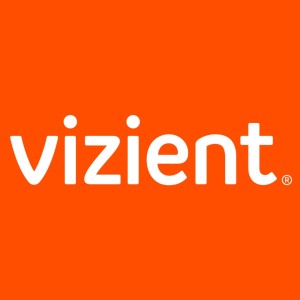
Tuesday Dec 26, 2023
Rollout Strategy Vexing: Pediatric RSV prevention strategy implementation challenges
RSV infections are not new and have devastating impacts. The recent advent of new prevention strategies has renewed the focus on the disease with a hopeful outlook. For the last 25 years, the only FDA approved product preventing RSV, lower respiratory tract disease, was palivizumab or Synagis, a monoclonal antibody indicated for use in high risk infants children and administered intramuscularly monthly throughout the RSV season.
In May, the first ever RSV vaccines were approved, Arexvy and Abrysvo. These two new RSV vaccines were approved for use in adults greater than or equal to 60 years of age. In August this year, one of the RSV vaccines, Abrysvo, also received approval for expanded use for maternal vaccination to prevent RSV lower respiratory tract disease in infants.
Nirsevimab or Beyfortus, a new long-acting monoclonal antibody, was approved in July for prevention of RSV lower respiratory tract disease in infants and children. Compared with palivizumab, nirsevimab is indicated for a much broader patient population including recommended use in all infants less than eight months of age, born during or entering their first RSV season.
The rollout of nirsevimab has proved challenging due to supply shortages, among other factors. Today we discuss the new RSV prevention strategies, focusing on the pediatric patient population, as well as the recent shortages with nirsevimab. Dr. Deb Bondi, Dr. Nikolai Dahl, as well as Dr. Kyle Hoelting from Vizient join guest host Vizient’s John Schoen for today's podcast.
Guest speakers:
Deb Bondi, PharmD, FCCP, BCPS, BCPPS
Pediatric Clinical Coordinator, NICU Clinical Pharmacy Specialist, and PGY2 Pediatric Pharmacy Residency Program Director
UChicago Medicine, Comer Children's Hospital
Nikolai Dahl, PharmD
Utilization and Formulary Program Manager
John Muir Health
Kyle Hoelting, PharmD, BCPS
Senior Clinical Manager of Drug Shortages and Drug Information
Vizient Center for Pharmacy Practice Excellence
Host:
John Schoen, PharmD, BCPS
Senior Clinical Manager of Evidence-Based Medicine and Drug Information
Vizient Center for Pharmacy Practice Excellence
Show Notes:
[02:39-04:09] Update on where everything currently stands with the Nirsevimab supply and what led to the shortage
[04:10-05:01] Information on whether or not there's going to be additional supply of either the 50 mg or 100 mg syringes later this season
[05:02-06:01] Resources related to mitigating this nirsevimab shortages
[06:02-10:29] What University of Chicago and John Muir Health are doing with these new RSV vaccines and the new monoclonal antibody, Beyfortus
[10:30-13:15] Formulary decisions University of Chicago and John Muir Health make around nirsevimab and palivizumab
[13:16-15:24] Organizational preference for the maternal RSV vaccine or nirsevimab
[15:25-20:33] Other logistical issues with either nirsevimab or the maternal RSV vaccines, such us scope of practice consideration, stocking of the VFC product in patient education, et cetera
[20:34-22:01] Payment of billing issues either University of Chicago or John Muir Health experienced for either nirsevimab or the maternal RSV vaccine
[22:02-24:57] Clinical pearls or advice related to these new prevention strategies
Links | Resources:
Vizient member RSV resources
RSV vaccines in adults side-by-side comparison
RSV monoclonal antibodies in pediatrics side-by-side comparison
FAQ pediatric RSV prevention strategies
Minute Market Insight on nirsevimab shortage
Mitigation strategy on nirsevimab shortage
Subscribe Today!